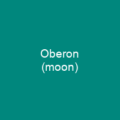A blue moon is an additional full moon that appears in a subdivision of a year. It is either the third of four full moons in a season, or a second full moon in a month of the common calendar. The phrase in modern usage has nothing to do with the actual color of the Moon. A visually blue Moon may occur under certain atmospheric conditions.
About Blue moon in brief

In 2007, Joe Rao, Skywatching Columnist at Space. com, stated that many years previously he had speculated in Natural History magazine that the \”Blue Moon Rule\” might derive from belewe, which he described as an Old English word meaning ‘to betray’, because the extra full moon \”betrays the usual perception of one full moon per month\”. He then added that his speculation had been ‘innovative’ but ‘completely wrong’ In 2009, a less detailed version of this speculation was mentioned in Farmers’ almanac. The website www. oldenglishtranslator says that the word belæwe is a form of the Old English verb belæwan. The intention may simply be that Jeffrey makes an absurd statement, \”the moon is blue\”, to make the point that priests require laymen to believe in statements even if they are patently false. Owing to the rarity of a blue moon, the term ‘blue moon’ is used colloquially to mean a rare event, as in the phrase ‘once in a bluemoon’
You want to know more about Blue moon?
This page is based on the article Blue moon published in Wikipedia (as of Dec. 05, 2020) and was automatically summarized using artificial intelligence.







